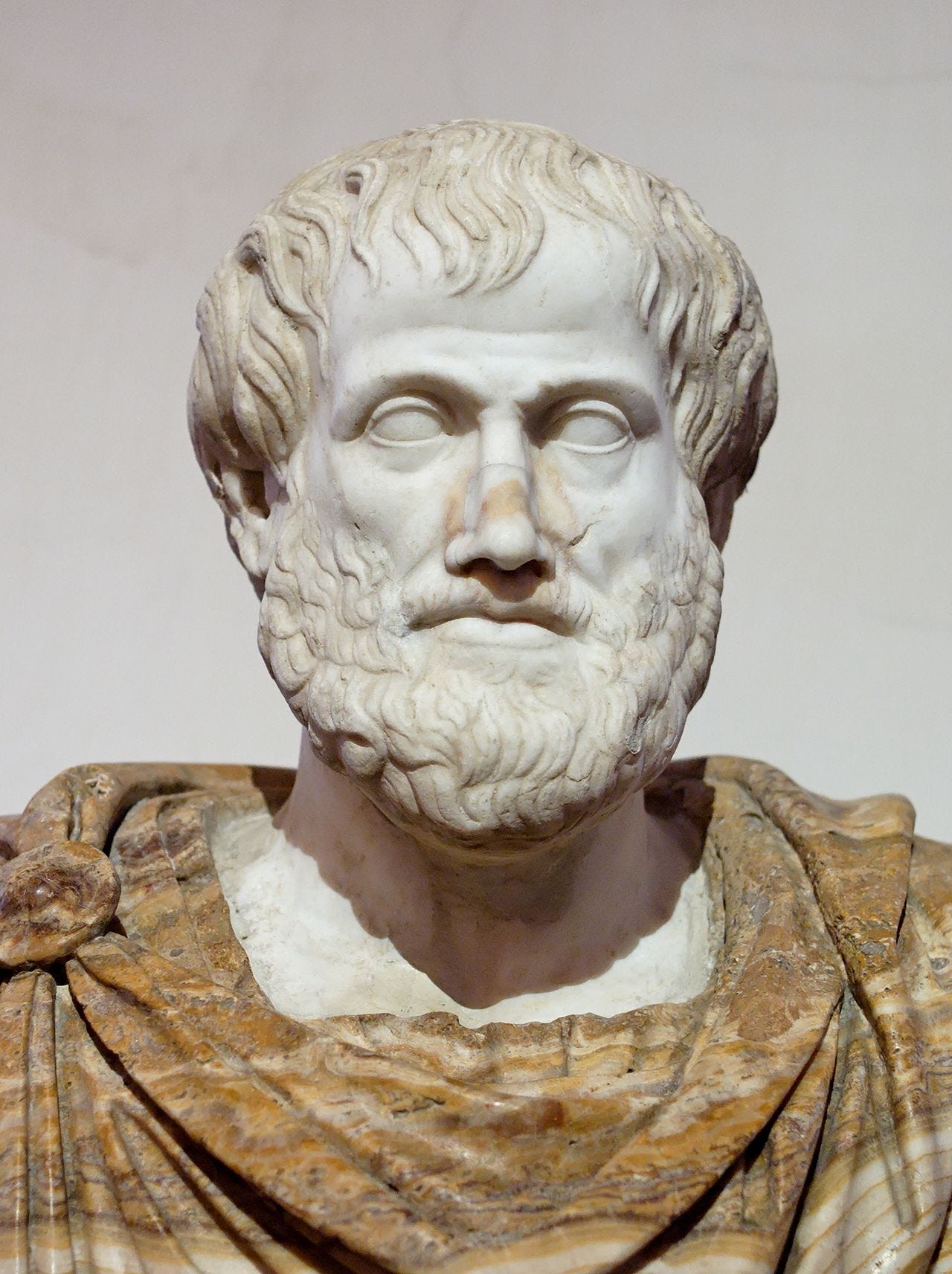Hey friends,
This week I’m testing out some different stuff. You’re still going to get your weekly thinker but I am also going to post 2 bonus profiles on my Substack blog/website. Your weekly email will include my favourite thinker and will link to the two bonus ones. This will always be on Tuesday.
There will also be a new weekly event that starts this week: a discussion thread! On Friday, you will be sent a link to a thread where we can discuss stuff and have more of a live experience. This should be a good opportunity to ask questions, raise a point of view and discuss philosophy, psychology science and art.
Any questions feel free to comment. If you didn’t realise that you can comment (and like) you can!
Bonus Thinkers
Aquinas: We Need More Balance In Society
Xenophanes: How to be more honest about life
Main Thinker
This weeks email is about Aristotle - often described as one of the greatest polymaths of all time. He wrote extensively on politics, art, theatre, biology, physics, and philosophy but it is his work in ethics that he is best known for.
He reminds us that it takes time, practice and encouragement to act morally and be virtuous. He thinks that people who lack virtue should be understood as unfortunate, rather than wicked.
What they need is better guidance about the virtues, and not being scolded. Here are three virtues that will help you reach ‘eudaimonia’ (flourishing or happiness).
Courage
While you might think that treating courage as a virtue is rather archaic and ancient being courageous is a great habit to cultivate in the modern world. The virtue of courage comes between two vices: rashness and cowardice. When we are making decisions in key areas of life (what work we do, our relationships), being courageous is vital. We should not frantically rush action or avoid it in a cowardly way. If we reflect on our decisions, we can ensure that we are being courageous - and one step closer to flourishing.
Wittiness
Aristotle identified that having good conversations was an important part of living well and the good life. Some people go wrong because they lack a subtle sense of humour (boorishness) and socially awkward. Some carry humour to the excess (buffoonery) and these people are those who stop at nothing to make a joke. The perfect balance is to be witty. We can be better at conversations by becoming better listeners - we can gauge the conversation and respond appropriately - and wittily.
Modesty
Aristotle identifies being modest as a virtue between shyness and shamelessness. Being modest means being quiet about your successes. Implicit in being modest is the knowledge that a significant part of your achievements come down to the circumstances you were in, luck and the way you were brought up. The modest person knows that there is so much imperfection in their life (like there is in every life) that boasting about an achievement just seems wrong. We will not undersell or oversell ourselves — and in doing so will be talking about our endeavours modestly.
Aristotle thought that there was a ‘golden mean’ for all of these virtues. It is the middle way between having not enough virtue or in excess. He also thought that we have to maintain our virtues. If we want to reach ‘eudaimonia’ or fulfil our potential then we need to keep on practising the virtues. A good life does not culminate in accomplishment but must be lived well from start to finish.
Thanks for reading, it means a lot. Feel free to forward or share if you enjoyed.
Take care, stay safe.
Jack.
Here is the longer article that this piece is based on (its got 1.2k views at the time of writing)





Hey Jack
I really like this man. Such a cool newsletter, thank you.
Do you know what Aristotle's view on free will was? From the sounds of things, I would imagine he was more against the idea in its literal sense.